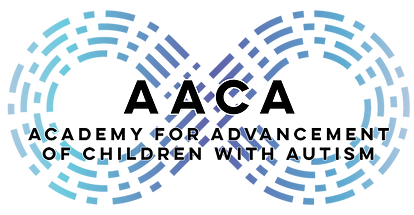Applied Behavioral Analysis (ABA) originates from the behavioral school of psychology of B. F. Skinner. It was developed as a treatment modality for autism by California researcher Dr. O. Ivar Lovaas more than 25 years ago and is still one of the most widely adapted forms of early-intervention therapy for young autistic children.
While typical children learn from the environment and through emulation, it is believed that children with autism must be taught language, play, and social skills in a highly structured environment. ABA is loosely based on the concept that behavior rewarded is more likely to be repeated than behavior ignored. Through positive reinforcement the child is helped to develop language; a variety of appropriate behaviors and responses; and personal care, play, and educational skills.
Children in ABA therapy usually work one-on-one with a team of ABA-trained therapists for 30 to 40 hours a week. The approach, involving what is called discrete trials, consists of tasks the child is requested to perform broken down into specific acts. Correct and appropriate responses from the child are rewarded by the therapist. Early success may simply be the child having eye contact with the therapist after being instructed to “look at me.” Over time, the child progresses through many different programs, each teaching one specific behavior or skill based on typical child development. Parents and caregivers are considered part of the therapeutic team. They help the child practice in natural settings the skills learned through ABA so that they become generalized in daily life.
Within the framework of “Positive Programming, ”AACA offers behavioral services to parents, schools, and regional centers. AACA also offers both Discrete Trial Training (DTT) and Floor Time Therapy. Therapeutic Behavioral Services (TBS) are also available.
General intervention programs include Applied Behavior Analysis, Parent Education Training, Care Provider Training, Functional Behavior Analysis, Behavior Support Plans, Functional Analysis Assessments, Behavior Intervention Plans, and Consultation/Implementation with school district personnel and parents. The emphasis is on developing a range of techniques in the parent’s, caregiver’s and teacher’s skills sets so they can continue to be effective in maintaining desirable behavior change in the child and generalize their skills to address new problem behaviors if and when they arise.
The goal of this service is to teach the underlying behavioral principles tat promote and effect behavior change. This is accomplished by systematically teaching new skills that are socially significant, while decreasing or eliminating behavior excesses that interfere with learning.
We at AACA are unique with these services as we offer them in the classroom as well as in the home setting.
Our therapists are all highly trained in these techniques and well supervised by master’s degree or higher supervisors. All staff providing these services undergo rigorous training and attend weekly meetings to ensure the best ABA services available.
